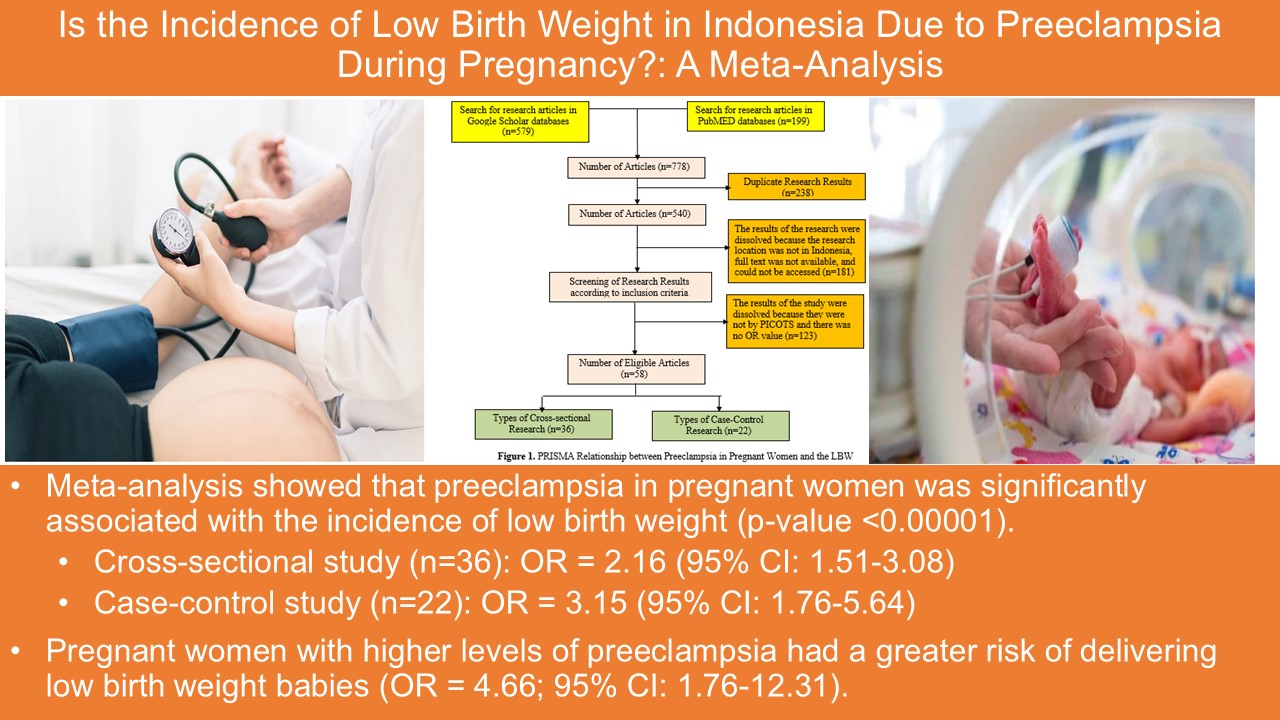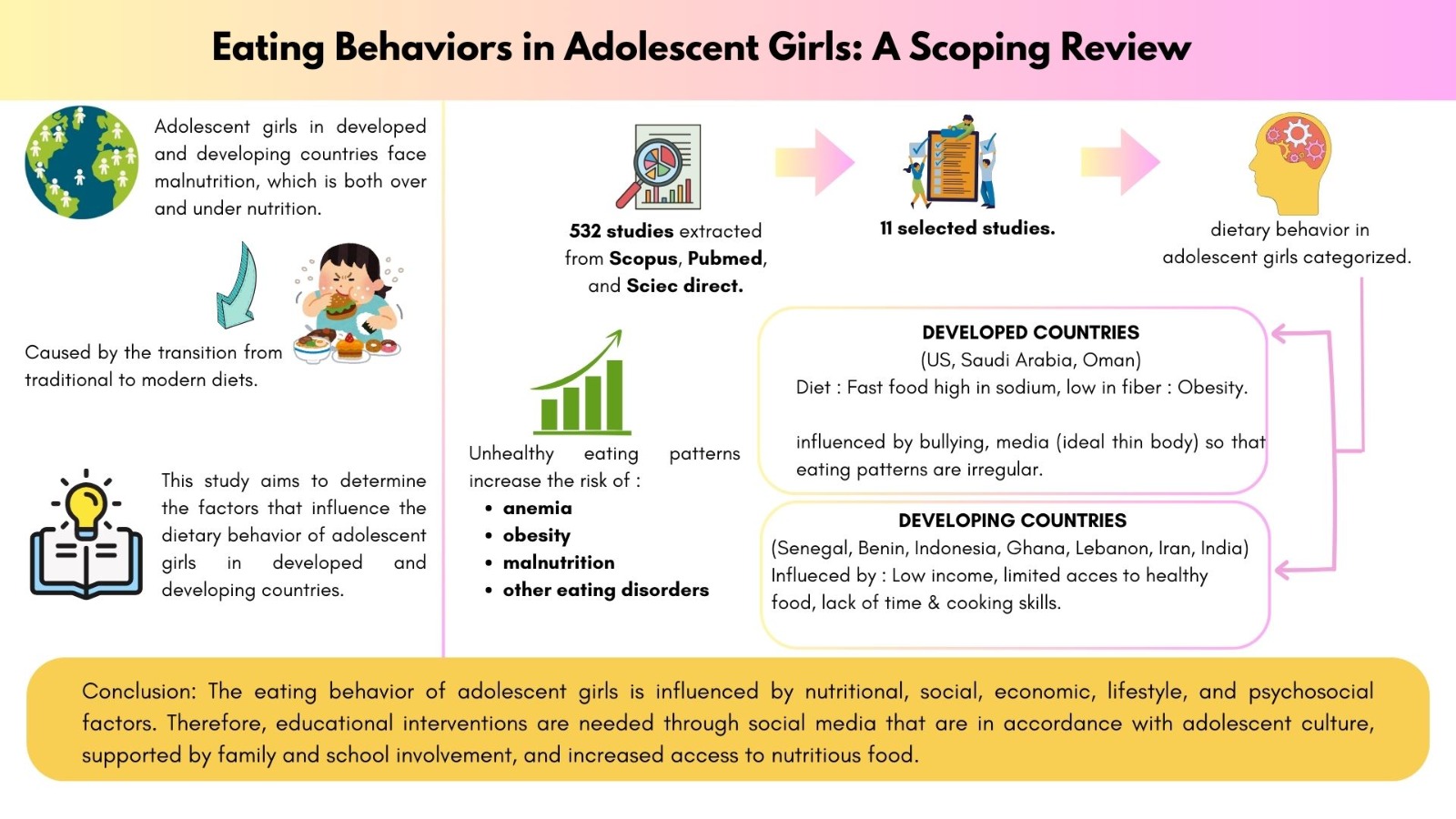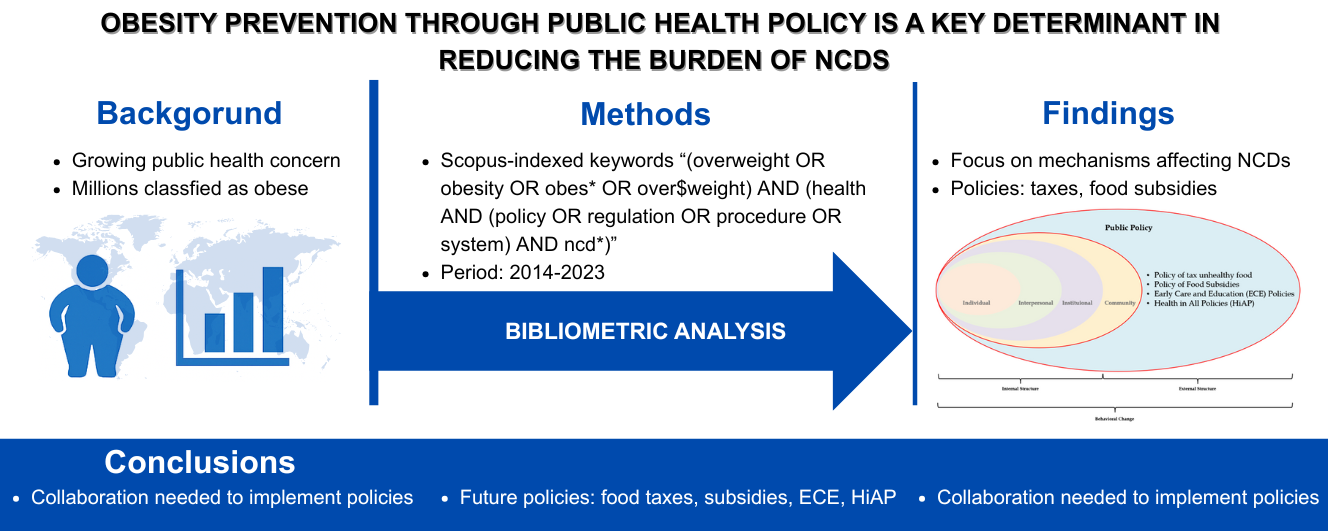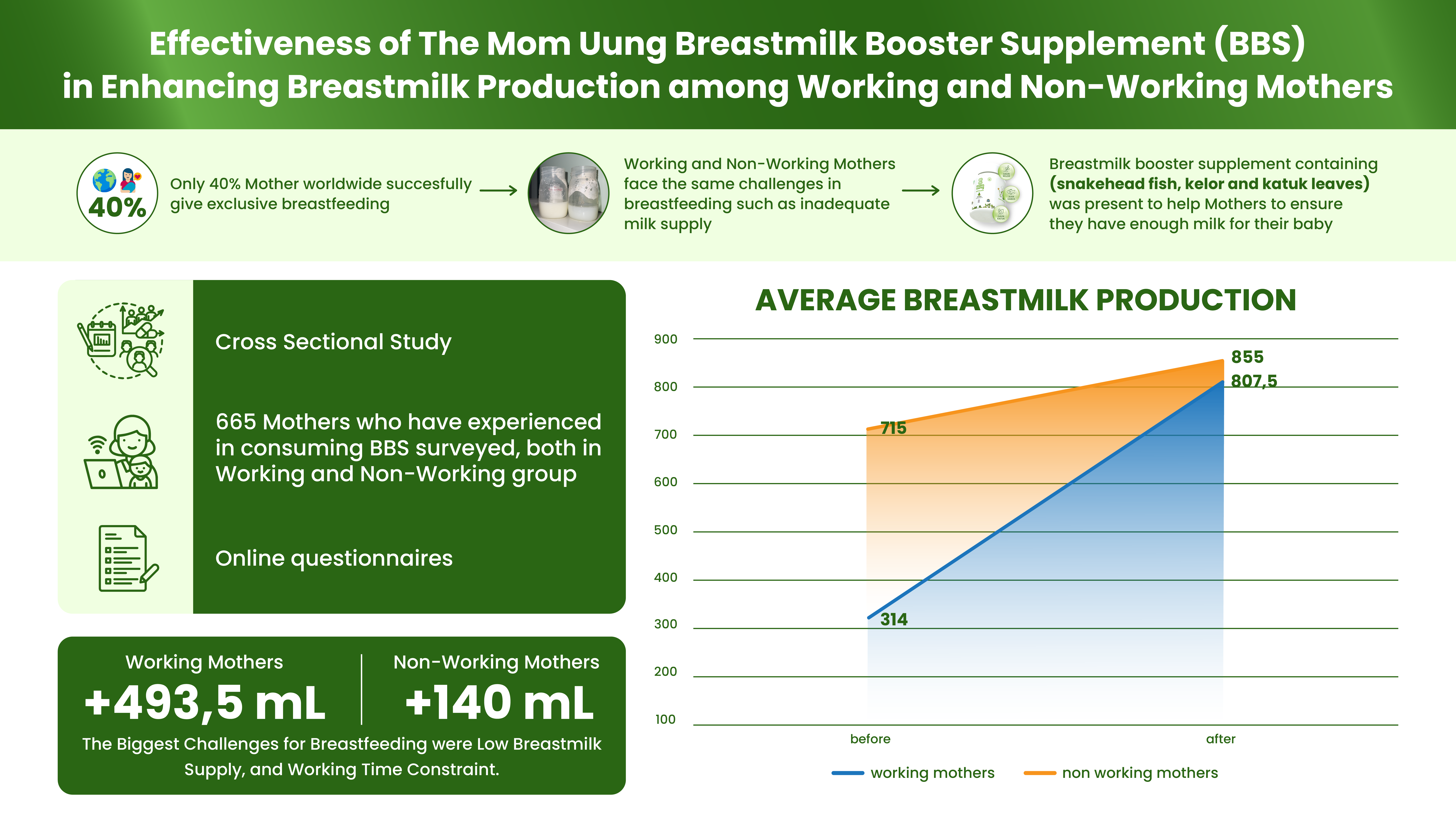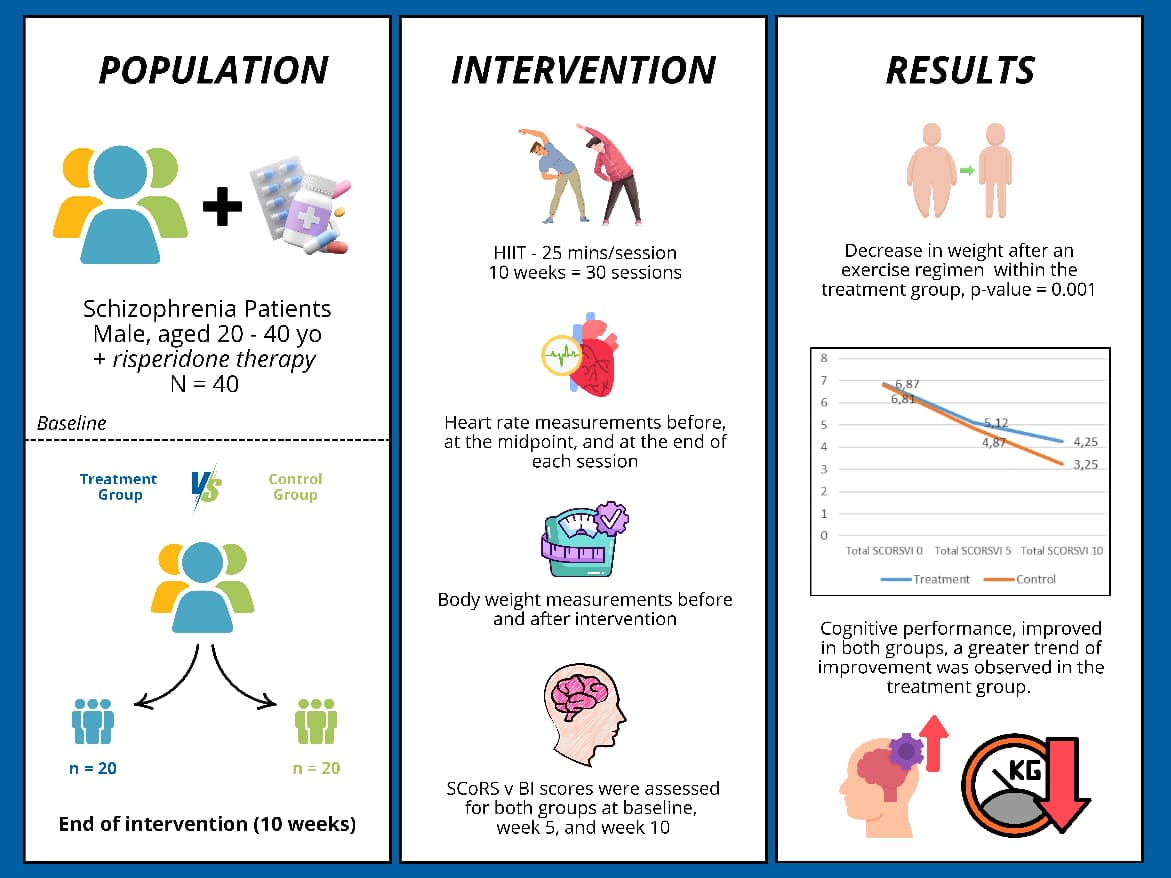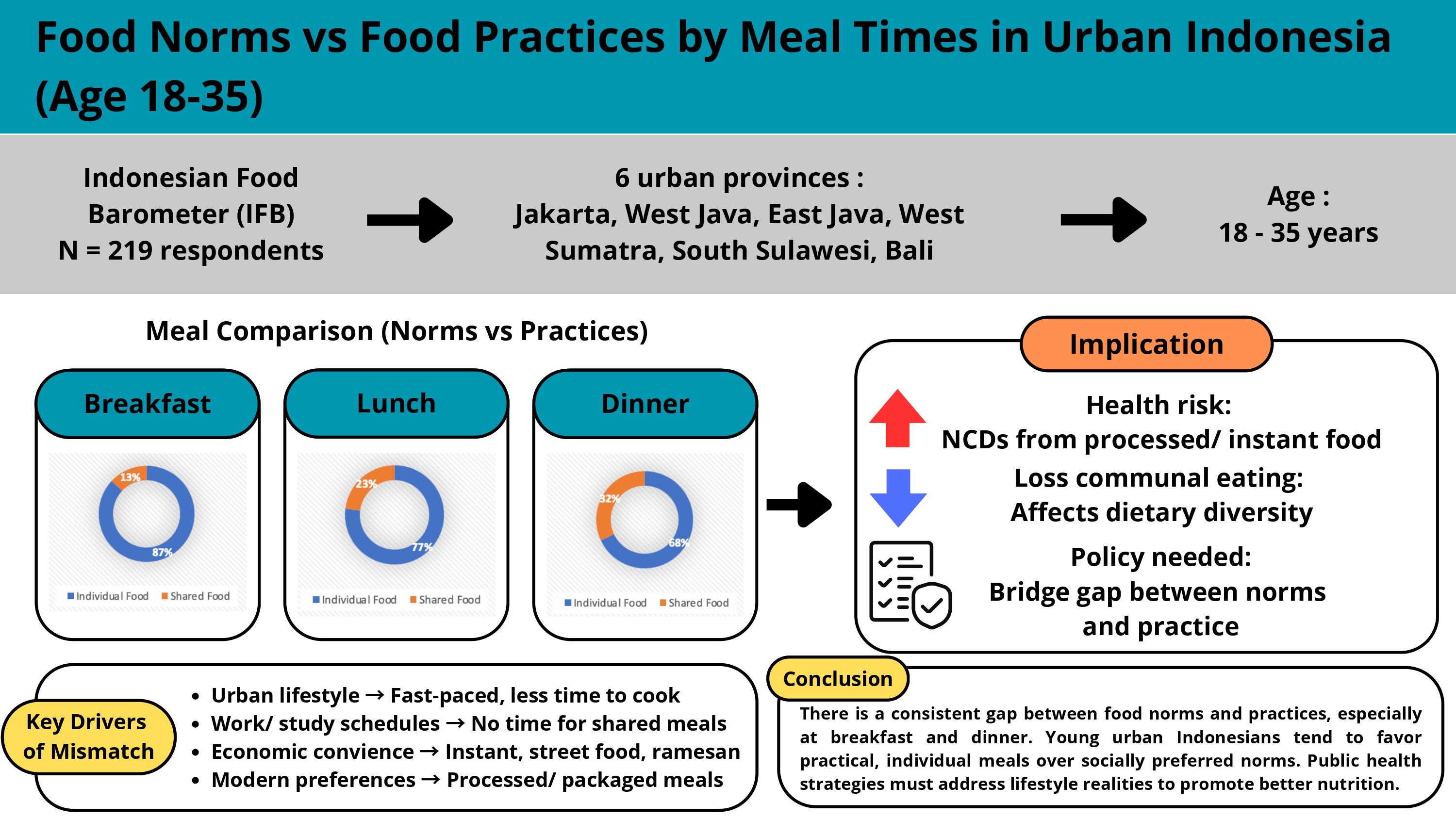Roles of Vitamins in Immunity and COVID-19: A Literature Review
Downloads
SARS-CoV-2 is a severe acute respiratory virus that causes Coronavirus Disease-19 (COVID-19). Even before the COVID-19 pandemic, diet was undeniably important in immunity. In order to be more resilient during and after the pandemic, understanding the role of vitamins is crucial. This review aims to explore the role of vitamins in supporting the immune system and its correlation to COVID-19. The article search was done using five electronic databases (i.e., Google Scholar, Semantic Scholar, ScienceDirect, PubMed, and PMC). Some of the keywords utilized in the literature search were "vitamin A and immunity” OR "vitamin B and immunity” OR "vitamin C and immunity” OR "vitamin D and immunity” OR "vitamin E and immunity”. A total of 51 articles was assessed in this literature review. Research finds vitamin A plays a role in both innate immune system cell function and humoral immunity by regulating, differentiating, and maturing immune system cells. Vitamin B complex primarily reduces inflammation by lowering serum C-reactive protein levels (CRP), while vitamin C strengthens epithelial barriers, phagocytes, T and B lymphocytes, and inflammatory mediators, to improve the immune system. Vitamin D acts as a mediator in the vitamin D receptor (VDR), an inner immune system component that regulates the humoral and adaptive immune systems through unique genetic transcriptions. Finally, vitamin E acts as an antioxidant, lowering the production of reactive oxygen and nitrogen species (ROS and RNS). In conclusion, all vitamins are essential in improving individual's immune system that prevent from infectious diseases including COVID-19.
Atherton, J. G., Kratzing, C. C., & Fisher, A. (1978). The effect of ascorbic acid on infection chick-embryo ciliated tracheal organ cultures by coronavirus. Archives of Virology, 56(3), 195–199. https://doi.org/10.1007/BF01317848
Beck, M. A., & Levander, O. A. (2000). Host nutritional status and its effect on a viral pathogen. The Journal of Infectious Diseases, 182(Supplement_1), S93–S96.
Beigmohammadi, M. T., Bitarafan, S., Hoseindokht, A., Abdollahi, A., Amoozadeh, L., Mahmoodi Ali Abadi, M., & Foroumandi, M. (2020). Impact of vitamins A, B, C, D, and E supplementation on improvement and mortality rate in ICU patients with coronavirus-19: a structured summary of a study protocol for a randomized controlled trial. Trials, 21(1), 614. https://doi.org/10.1186/s13063-020-04547-0
Calder, P. C., Carr, A. C., Gombart, A. F., & Eggerdorfer, M. (2020). Optimal Nutritional Status for a Well-Functioning Immune System Is an Important Factor to Protect against Viral Infections. Nutrients, 4, 1181.
Carr, A. C., & Maggini, S. (2017). Vitamin C and Immune Function. Nutrients, 9(11), 1211. https://doi.org/10.3390/nu9111211
Chang, H.-K., & Hou, W.-S. (2015). Retinoic acid modulates interferon-γ production by hepatic natural killer T cells via phosphatase 2A and the extracellular signal-regulated kinase pathway. Journal of Interferon & Cytokine Research : The Official Journal of the International Society for Interferon and Cytokine Research, 35(3), 200–212. https://doi.org/10.1089/jir.2014.0098
Cheng, C., Chang, S., Lee, B., Lin, K., & Huang, Y. (2006). Vitamin B6 supplementation increases immune responses in critically ill patients. European Journal of Clinical Nutrition, 60, 1207–1213. https://doi.org/10.1038/sj.ejcn.1602439
Chieosilapatham, P., Ikeda, S., & Ogawa, H. (2018). Tissue-specific Regulation of Innate Immune Responses by Human Cathelicidin LL-37. Current Pharmaceutical Design, 24, 1079–1091. https://doi.org/10.2174/1381612824666180327113418
Coquette, A., Vray, B., & Vanderpas, J. (1986). Role of vitamin E in the protection of the resident macrophage membrane against oxidative damage. Archives Internationales de Physiologie et de Biochimie, 94(5), S29-34.
Crane-godreau, M. A., Clem, K. J., Payne, P., & Fiering, S. (2020). Vitamin D Deficiency and Air Pollution Exacerbate COVID-19 Through Suppression of Antiviral Peptide LL37. Frontiers in Public Health, 8(May), 1–5. https://doi.org/10.3389/fpubh.2020.00232
D'Avolio, A., Avataneo, V., Manca, A., Cusato, J., Nicol, A. De, Lucchini, R., Keller, F., & Cant, M. (2020). 25-Hydroxyvitamin D Concentrations Are Lower in Patients with Positive PCR for SARS-CoV-2. Nutrients, 12, 1359. https://doi.org/10.3390/nu12051359
de Jongh, R. T., van Schoor, N. M., & Lips, P. (2017). Changes in vitamin D endocrinology during aging in adults. Molecular and Cellular Endocrinology, 453, 144–150. https://doi.org/https://doi.org/10.1016/j.mce.2017.06.005
Dimitrov, V., & White, J. H. (2016). Species-specific regulation of innate immunity by vitamin D signaling. The Journal of Steroid Biochemistry and Molecular Biology, 164, 246–253. https://doi.org/https://doi.org/10.1016/j.jsbmb.2015.09.016
Fisher, B. J., Kraskauskas, D., Martin, E. J., Farkas, D., Wegelin, J. A., Brophy, D., Ward, K. R., Voelkel, N. F., Fowler, A. A., & Natarajan, R. (2012). Mechanisms of attenuation of abdominal sepsis induced acute lung injury by ascorbic acid. American Journal of Physiology-Lung Cellular and Molecular Physiology, 303(1), L20–L32. https://doi.org/10.1152/ajplung.00300.2011
Gavazzi, C., Colatruglio, S., Sironi, A., Mazzaferro, V., & Miceli, R. (2011). Importance of early nutritional screening in patients with gastric cancer. British Journal of Nutrition, 106(12), 1773–1778.
Ghosh, A. J., Moll, M., Hayden, L. P., Bon, J., Regan, E., & Hersh, C. P. (2020). Vitamin D deficiency is associated with respiratory symptoms and airway wall thickening in smokers with and without COPD : a prospective cohort study. BMC Pulmonary Medicine, 20(123), 1–9. https://doi.org/10.1186/s12890-020-1148-4
Ginaldi, L., Loreto, M. F., Corsi, M. P., Modesti, M., & De Martinis, M. (2001). Immunosenescence and infectious diseases. Microbes and Infection, 3(10), 851–857.
Gombart, A. F., Pierre, A., & Maggini, S. (2020). A Review of Micronutrients and the Immune System – Working in Harmony to Reduce the Risk of Infection. Nutrients, 12(1), 236.
Gorji, A., & Ghadiri, M. K. (2021). Potential roles of micronutrient deficiency and immune system dysfunction in the coronavirus disease 2019 (COVID-19) pandemic. Nutrition, 82, 111047.
Grant, W. B., Lahore, H., Mcdonnell, S. L., Baggerly, C. A., French, C. B., Aliano, J. L., & Bhattoa, H. P. (2020). Evidence that Vitamin D Supplementation Could Reduce Risk of Influenza and COVID-19 Infections and Deaths. Nutrients, 12, 988. https://doi.org/:10.3390/nu12040988
Fernández-Quintela, A., Milton-Laskibar, I., Trepiana, J., Gómez-Zorita, S., Kajarabille, N., Léniz, A., ... & Portillo, M. P. (2020). Key aspects in nutritional management of COVID-19 patients. Journal of clinical medicine, 9(8), 2589.
Green, H. N., & Mellanby, E. (1928). Vitamin A as an Anti-Infective Agent. British Medical Journal, 2(3537), 691–696. https://doi.org/10.1136/bmj.2.3537.691
Hancer, A. T., Yilmaz, P., & Yilmaz, M. (2020). New Coronavirus ( 2019-nCoV / COVID-19 ) and Vitamin C. Turkiye Klinikleri Journal of Medical Sciences, 40(May), 2–6. https://doi.org/10.5336/medsci.2020-76024
Hemilä, H. (2016). Vitamin E administration may decrease the incidence of pneumonia in elderly males. Clinical Interventions in Aging, 11, 1379.
Hiedra, R., Lo, K. B., Elbashabsheh, M., Gul, F., Wright, R. M., Albano, J., Azmaiprashvili, Z., & Patarroyo Aponte, G. (2020). The Use of IV vitamin C for patients with COVID-19: a single center observational study. Expert Review of Anti-Infective Therapy, null-null. https://doi.org/10.1080/14787210.2020.1794819
Huang, C., Wang, Y., Li, X., Ren, L., Zhao, J., Hu, Y., Zhang, L., Fan, G., Xu, J., & Gu, X. (2020). Clinical features of patients infected with 2019 novel coronavirus in Wuhan, China. The Lancet, 395(10223), 497–506.
Huang, Z., Liu, Y., Qi, G., Brand, D., & Zheng, S. G. (2018). Role of Vitamin A in the Immune System. Journal of Clinical Medicine, 7(9), 258. https://doi.org/10.3390/jcm7090258
Institute of Medicine. (2000). Dietary Reference Intakes for Vitamin C, Vitamin E, Selenium, and Carotenoids. National Academy Press.
Jayawardena, R., Sooriyaarachchi, P., Chourdakis, M., Jeewandara, C., & Ranasinghe, P. (2020). Enhancing immunity in viral infections, with special emphasis on COVID-19: A review. Diabetes & Metabolic Syndrome: Clinical Research & Review, Pre-proof. https://doi.org/https://doi.org/10.1016/ j.dsx.2020.04.015.
Jiang, C. Q., Chan, Y. H., Xu, L., Jin, Y. L., Zhu, T., Zhang, W. S., & Cheng, K. K. (2016). Smoking and serum vitamin D in older Chinese people : cross-sectional analysis based on the Guangzhou Biobank Cohort Study. BMJ Open, 6, e010946. https://doi.org/10.1136/bmjopen-2015-010946
Jiang, J., Chou, H., & Chen, C. (2020). Free Radical Biology and Medicine Cathelicidin attenuates hyperoxia-induced lung injury by inhibiting oxidative stress in newborn rats. Free Radical Biology and Medicine, 150(January), 23–29. https://doi.org/10.1016/j.freeradbiomed.2020.02.005
Keil, S. D., Bowen, R., & Marschner, S. (2016). Inactivation of Middle East respiratory syndrome coronavirus (MERS-CoV) in plasma products using a riboflavin-based and ultraviolet light-based photochemical treatment. Transfusion, 12, 2948–2952. https://doi.org/10.1111/trf.13860
Kishimoto, Y., Saito, N., Kurita, K., Shimokado, K., & Maruyama, N. (2013). Ascorbic acid enhances the expression of type 1 and type 4 collagen and SVCT2 in cultured human skin fibroblasts. Biochemical and Biophysical Research Communications, 430(2), 579–584. https://doi.org/10.1016/j.bbrc.2012.11.110
Koivisto, O., & Hanel, A. (2020). Key Vitamin D Target Genes with Functions in the Immune System. Nutrients, 12, 1140. https://doi.org/10.3390/nu12041140
Lauer, A.-C., Groth, N., Haag, S. F., Darvin, M. E., Lademann, J., & Meinke, M. C. (2013). Dose-Dependent Vitamin C Uptake and Radical Scavenging Activity in Human Skin Measured with in vivo Electron Paramagnetic Resonance Spectroscopy. Skin Pharmacology and Physiology, 26(3), 147–154. https://doi.org/10.1159/000350833
Lee, G. Y., & Han, S. N. (2018). The role of vitamin E in immunity. Nutrients, 10(11), 1614.
Mahdavi, A. M. (2020). A brief review of interplay between vitamin D and angiotensin- converting enzyme 2 : Implications for a potential treatment for. Rev Med Virol, April, 1–6. https://doi.org/10.1002/rmv.2119
McCartney, D. M., & Byrne, D. G. (2020). Optimisation of Vitamin D Status for Enhanced Immuno-protection Against Covid-19. Irish Medical Journal, 113(4), 20–23.
Meydani, S. N., Leka, L. S., Fine, B. C., Dallal, G. E., Keusch, G. T., Singh, M. F., & Hamer, D. H. (2004). Vitamin E and respiratory tract infections in elderly nursing home residents: a randomized controlled trial. Jama, 292(7), 828–836.
Meydani, S. N., Lewis, E. D., & Wu, D. (2018). Perspective: should vitamin E recommendations for older adults be increased? Advances in Nutrition, 9(5), 533–543.
Ministry of Health. (2018). Indonesian Food Composition Table 2017. Jakarta: Ministry of Health.
Ministry of Health. (2019). Hasil Riskesdas 2018. Jakarta: Ministry of Health.
Mohammed, B. M., Fisher, B. J., Kraskauskas, D., Ward, S., Wayne, J. S., Brophy, D. F., Fowler III, A. A., Yager, D. R., & Natarajan, R. (2016). Vitamin C promotes wound healing through novel pleiotropic mechanisms. International Wound Journal, 13(4), 572–584. https://doi.org/10.1111/iwj.12484
Morris, M. S., Sakakeeny, L., Jacques, P. F., Picciano, M. F., & Selhub, J. (2010). Vitamin B-6 Intake Is Inversely Related to, and the Requirement Is Affected by, Inflammation Status. The Journal of Nutrition, 140(1), 103–110. https://doi.org/10.3945/jn.109.114397.These
Mungroo, M. R., Khan, N. A., & Siddiqui, R. (2020). Novel coronavirus: current understanding of clinical features, diagnosis, pathogenesis, and treatment options. Pathogens, 9(4), 297.
Muscogiuri, G., Barrea, L., Savastano, S., & Colao, A. (2020). Nutritional recommendations for CoVID-19 quarantine. European Journal of Clinical Nutrition, 74(6), 850–851. https://doi.org/10.1038/s41430-020-0635-2
Nanri, A., Nakamoto, K., Sakamoto, N., Imai, T., & Akter, S. (2016). Association of serum 25-hydroxyvitamin D with in fl uenza in case-control study nested in a cohort of Japanese employees. Clinical Nutrition, 36(5), 1288–1293. https://doi.org/10.1016/j.clnu.2016.08.016
Narayanan, N., & Nair, D. T. (2020). Vitamin B12 may inhibit RNA-dependent-RNA polymerase activity of nsp12 from the SARS-CoV-2 Virus. Preprints, 2020030347. https://doi.org/10.20944/preprints202003.0347.v1
Pham, H., Rahman, A., Majidi, A., Waterhouse, M., & Neale, R. E. (2019). Acute Respiratory Tract Infection and 25-Hydroxyvitamin D Concentration : A Systematic Review and Meta-Analysis. International Journal of Envi, 16, 2–15. https://doi.org/10.3390/ijerph16173020
Poudel-tandukar, K. (2016). Dietary B Vitamins and Serum C-Reactive Protein in Persons With Human Immunodeficiency Virus Infection : The Positive Living With HIV (POLH) Study. Food and Nutrition Bulletin, 37(4), 517–528. https://doi.org/10.1177/0379572116657268
Qian, B., Shen, S., Zhang, J., & Jing, P. (2017). Effects of Vitamin B6 Deficiency on the Composition and Functional Potential of T Cell Populations. Journal of Immunology Research, Article ID 2197975. https://doi.org/10.1155/2017/2197975
Ragan, I., Hartson, L., Pidcoke, H., Bowen, R., & GoodrichI, R. (2020). Pathogen reduction of SARS-CoV-2 virus in plasma and whole blood using riboflavin and UV light. PLoS ONE, 15(15), e0233947. https://doi.org/10.1371/journal.pone.0233947
Ramakrishnan, U. (2002). Prevalence of micronutrient malnutrition worldwide. Nutrition Reviews, 60(suppl_5), S46–S52.
Roizen, J. D., Long, íƒ. C., Casella, íƒ. A., Lear, L. O., Caplan, I., Lai, M., Sasson, I., Singh, R., Makowski, A. J., Simmons, R., & Levine, M. A. (2019). Obesity Decreases Hepatic 25-Hydroxylase Activity Causing Low Serum 25-Hydroxyvitamin D. Journal of Bone and Mineral Research, 34(6), 1068–1073. https://doi.org/10.1002/jbmr.3686
Ross, A. C., & Restori, K. H. (2013). Vitamin A and the immune system. In P. Calder & P. Yaqoob (Eds.), Diet, immunity and inflammation (pp. 221–243). Woodhead Publishing Limited. https://doi.org/10.1533/9780857095749.2.221
Sassi, F., Tamone, C., & Amelio, P. D. (2018). Vitamin D: Nutrient, Hormone, and Immunomodulator. Nutrients, 10(11), 1656. https://doi.org/10.3390/nu10111656
Semba, R. D. (1999). Vitamin A and immunity to viral, bacterial and protozoan infections. Proceedings of the Nutrition Society, 58(3), 719–727. https://doi.org/DOI: 10.1017/S0029665199000944
Shetty, P. (2010). Nutrition, Immunity and Infection. Cambridge University Press.
Shi, H., Han, X., Jiang, N., Cao, Y., Alwalid, O., Gu, J., Fan, Y., & Zheng, C. (2020). Radiological findings from 81 patients with COVID-19 pneumonia in Wuhan, China: a descriptive study. The Lancet Infectious Diseases, 20(4), 425–434.
Tamura, J., Kubota, K., Murakami, H., Sawamura, M., Matsushima, T., Tamura, T., Saitoh, T., Kurabayshi, H., & Naruse, T. (1999). Immunomodulation by vitamin B12 : augmentation of CD8 í¾ T lymphocytes and natural killer ( NK ) cell activity in vitamin B12-deficient patients by methyl-B12. Clin Exp Immunol, 116(1), 28–32. https://doi.org/10.1046/j.1365-2249.1999.00870.x
Tanaka, M., Muto, N., Gohda, E., & Yamamoto, I. (1994). Enhancement by Ascorbic Acid 2-Glucoside or Repeated Additions of Ascorbate of Mitogen-Induced IgM and IgG Productions by Human Peripheral Blood Lymphocytes. The Japanese Journal of Pharmacology, 66(4), 451–456. https://doi.org/10.1254/jjp.66.451
Wang, J.-Z., Zhang, R.-Y., & Bai, J. (2020). An anti-oxidative therapy for ameliorating cardiac injuries of critically ill COVID-19-infected patients. International Journal of Cardiology.
WHO. (2020). Coronavirus disease (COVID-19) pandemic. https://covid19.who.int
Wintergerst, E. S., Maggini, S., & Hornig, D. H. (2007). Contribution of Selected Vitamins and Trace Elements to Immune Function. Annals of Nutrition & Metabolism, 51(4), 301–323. https://doi.org/10.1159/000107673
Wu, D., & Meydani, S. . (2018). Vitamin E, Immunity, and Infection. In P. Calder & A. Kulkarni (Eds.), Nutrition, Immunity, and Infection (pp. 197–212). CRC Press.
Wu, Dayong, Lewis, E. D., Pae, M., & Meydani, S. N. (2019). Nutritional modulation of immune function: analysis of evidence, mechanisms, and clinical relevance. Frontiers in Immunology, 9, 3160.
Wynn, T. A., & Vannella, K. M. (2016). Macrophages in Tissue Repair, Regeneration, and Fibrosis. Immunity, 44(3), 450–462. https://doi.org/10.1016/j.immuni.2016.02.015
Yoshii, K., Hosomi, K., Sawane, K., & Kunisawa, J. (2019). Metabolism of Dietary and Microbial Vitamin B Family in the Regulation of Host Immunity. Frontiers in Nutrition, 6(48). https://doi.org/10.3389/fnut.2019.00048
Zdrenghea, M. T., Johnston, S. L., Makrinioti, H., Bagacean, C., Stanciu, L. A., & Bush, A. (2017). Vitamin D modulation of innate immune responses to respiratory viral infections. Rev Med Virol, 24, 1909. https://doi.org/10.1002/rmv.1909
Zhang, A., Zhang, X., Wang, F., Zhang, W., Wang, C., Yu, C., Zhao, J., Gao, L., & Xu, J. (2016). The relationship between obesity indices and serum vitamin D levels in Chinese adults from urban settings. Asia Pac J Clin Nutr, 25(March 2015), 333–339. https://doi.org/10.6133/apjcn.2016.25.2.15
Zhang, L., & Liu, Y. (2020). Potential interventions for novel coronavirus in China : A systematic review. Journal of Medical Virology, 92(5), 479–490. https://doi.org/10.1002/jmv.25707
Zittermann, A., Pilz, S., Hoffmann, H., & März, W. (2016). Vitamin D and airway infections : a European perspective. European Journal of Medical Research, 21, 14. https://doi.org/10.1186/s40001-016-0208-y

This work is licensed under a Creative Commons Attribution-NonCommercial-ShareAlike 4.0 International License.
- MEDIA GIZI INDONESIA Journal is the copyright owner of all materials published on this website.
- The formal legal provisions for access to digital articles of this electronic journal are subject to the terms of the Creative Commons Attribution-NonCommercial-ShareAlike license (CC BY-NC-SA 4.0), which means that MEDIA GIZI INDONESIA Journal and readers reserve the right to save, transmit media / format, manage in database, maintain, and publish articles as long as it continues to include the name of the Author.
- Printed and published print and electronic manuscripts are open access for educational, research and library purposes. In addition to these objectives, the editorial board shall not be liable for violations of copyright law.


2.png)















